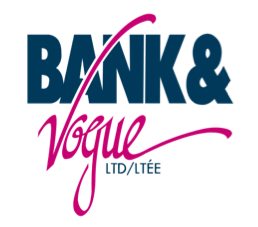The secondhand market is booming, driven by an increasing emphasis on sustainability, circular economy practices, and shifting consumer preferences toward more affordable, unique, and environmentally friendly options. For wholesalers in the secondhand goods industry, it’s an exciting time but one that requires careful attention to the legal landscape. As more businesses enter the space, it’s crucial to understand the regulatory framework that governs the resale of used items. Here’s what you need to know to navigate the legal side of secondhand goods as a wholesaler.
1. Regulations on Secondhand Goods Sales
The sale of secondhand goods is subject to various regulations that can vary significantly by country, state, or region. Key areas to pay attention to include:
- Consumer Protection Laws: These laws ensure that customers buying secondhand goods are treated fairly. Wholesalers should provide accurate descriptions, clear pricing, and any information about defects or damages. In some regions, the sale of secondhand goods is subject to laws like the Consumer Rights Act in the UK or the Magnuson-Moss Warranty Act in the US, which might necessitate certain disclosures.
- Product Safety Standards: Wholesalers need to ensure that the goods they sell comply with safety regulations. This is particularly important for items like children’s clothing and toys, electronics, and other products that could pose safety risks. In the European Union, the General Product Safety Directive applies to secondhand goods, ensuring that they do not pose risks to consumers. Similar regulations exist in other jurisdictions, like the Consumer Product Safety Improvement Act (CPSIA) in the United States.
- Labeling Requirements: Proper labeling is crucial, especially when dealing with products like textiles, electronics, and food-related items. Laws may require labels indicating if an item is used or refurbished. Clear communication helps maintain transparency and trust with B2B buyers and ensures compliance with legal standards.
2. Intellectual Property Considerations
Wholesalers in the secondhand market must be aware of intellectual property (IP) concerns, especially when dealing with branded or trademarked items.
- Trademarks: Selling secondhand branded items does not automatically infringe on trademarks, thanks to the “first sale doctrine.” However, this protection only applies if the items are sold in their original form without significant alteration. If you repurpose or alter items in ways that could cause brand confusion (such as rebranding or modifying logos), you could be at risk of trademark infringement claims.
- Gray Market Goods: Be cautious with “gray market” goods—authentic products sold through unauthorized distribution channels. While these items are genuine, their sale can still result in disputes with brand owners, particularly if the goods differ from those intended for a specific market (e.g., due to different safety standards or warranties).
3. Environmental Regulations and Sustainability Standards
As environmental concerns drive the secondhand market, wholesalers must navigate various regulations around waste management and sustainability reporting.
- Extended Producer Responsibility (EPR): Some jurisdictions have EPR regulations that hold companies responsible for the end-of-life disposal of their products. While traditionally applied to manufacturers, these laws increasingly impact wholesalers and retailers, particularly those dealing in electronics and textiles. Understanding local EPR obligations is crucial to avoid unexpected fees or penalties.
- Textile Waste Management: For wholesalers dealing in secondhand clothing, textile waste management regulations are key. This includes complying with rules around the import and export of used textiles, which can be stringent in certain regions. In the EU, regulations like the Waste Framework Directive push for sustainable handling of textile waste, making it essential for wholesalers to work with reputable recycling and processing partners.
- Eco-Certifications: While not always legally required, obtaining certifications like GRS (Global Recycled Standard) or similar can enhance a wholesaler’s reputation and demonstrate a commitment to environmental responsibility. These certifications often require a thorough audit of sourcing and supply chain practices.
4. Import and Export Regulations
Moving secondhand goods across borders comes with its own set of challenges. Understanding the specific requirements of each country involved in your supply chain is essential.
- Customs Declarations and Tariffs: Importing and exporting used goods may be subject to different customs rules and tariffs than new items. For example, the United States has specific tariff classifications for used clothing, while the EU may have different regulations for used electronics.
- Bans and Restrictions: Some countries place bans or restrictions on the import of certain secondhand goods, often for public health or environmental reasons. For example, several African nations, including Rwanda and Kenya, have introduced bans on the import of secondhand clothing to boost their domestic textile industries. Wholesalers need to stay updated on these changes to avoid legal complications.
- Licensing Requirements: Some jurisdictions require specific licenses for businesses that trade in secondhand goods, particularly if they are classified as “used merchandise dealers.” These licenses are often aimed at preventing the resale of stolen goods and require compliance with local record-keeping and reporting regulations.
5. Data Privacy and Security
In the digital age, many secondhand wholesalers operate online, making data privacy and cybersecurity essential considerations.
- Data Protection Laws: Wholesalers that collect personal data from buyers or other B2B clients need to comply with data protection regulations like the EU’s General Data Protection Regulation (GDPR) or the California Consumer Privacy Act (CCPA). This includes ensuring secure storage of data and respecting customers’ rights to access and delete their information.
- Online Transaction Security: If your wholesale business includes e-commerce operations, it’s crucial to have secure payment systems to prevent fraud and protect sensitive financial information. Compliance with Payment Card Industry Data Security Standards (PCI DSS) is often required when handling credit card transactions.
Conclusion: A Balanced Approach to Compliance
Navigating the legal complexities of the secondhand goods market can seem daunting, but it is crucial for the growth and sustainability of your wholesale business. Staying informed about the relevant regulations and working with legal experts can help ensure compliance while capitalizing on the booming demand for secondhand goods. By focusing on transparency, safety, and environmental responsibility, wholesalers can not only meet legal requirements but also build trust with their partners and customers—ultimately turning regulatory challenges into opportunities for growth.
Staying proactive about these legal considerations is key to thriving in a dynamic market. The rules may change, but a commitment to best practices and due diligence will always pay off in the long run.








